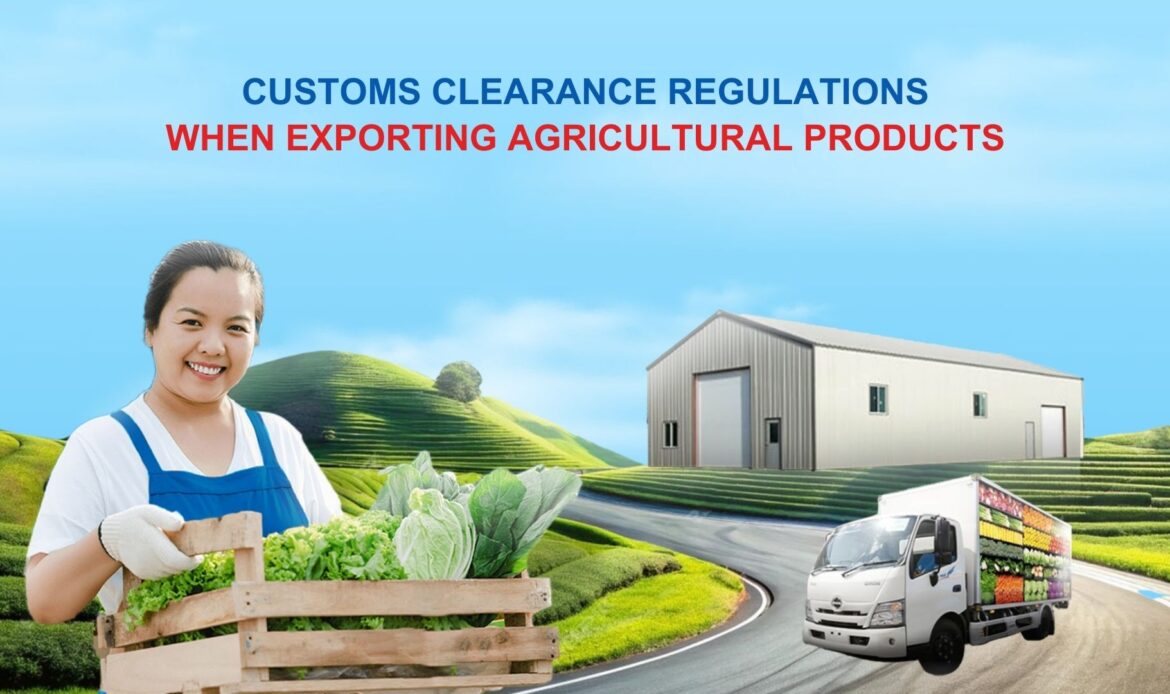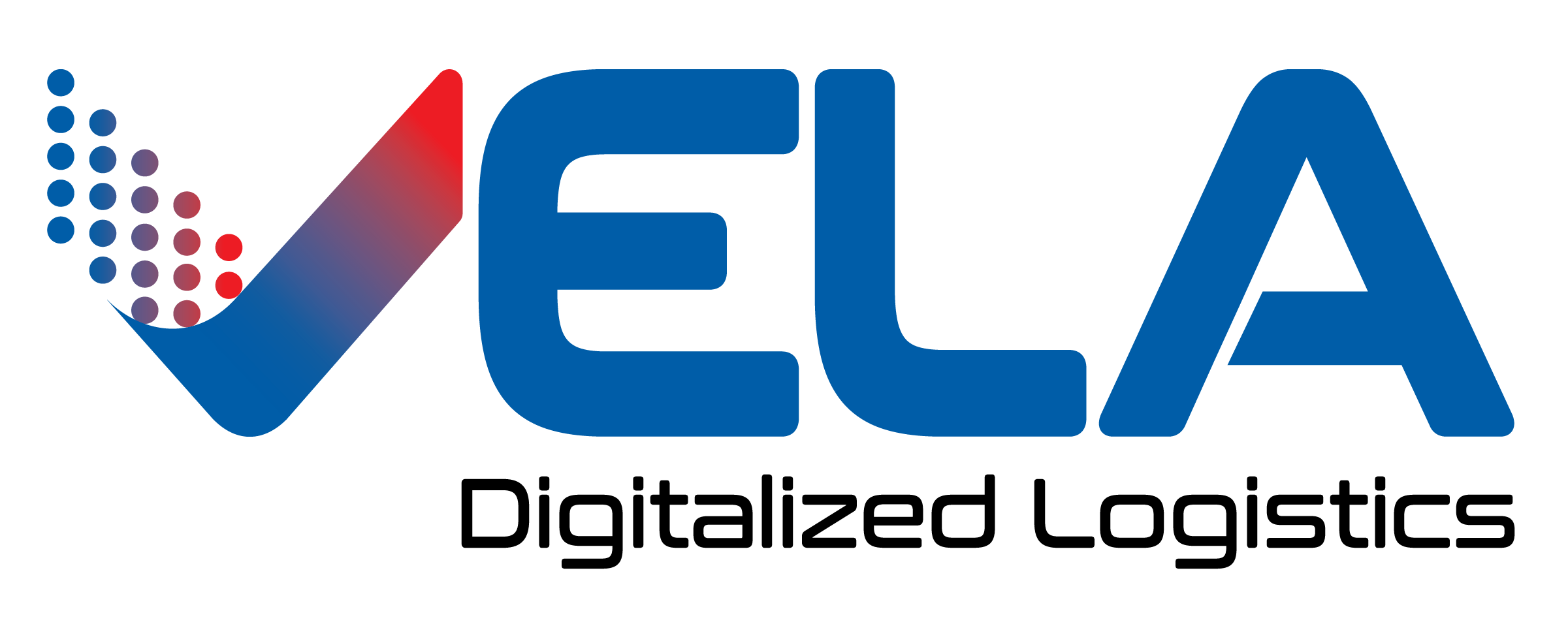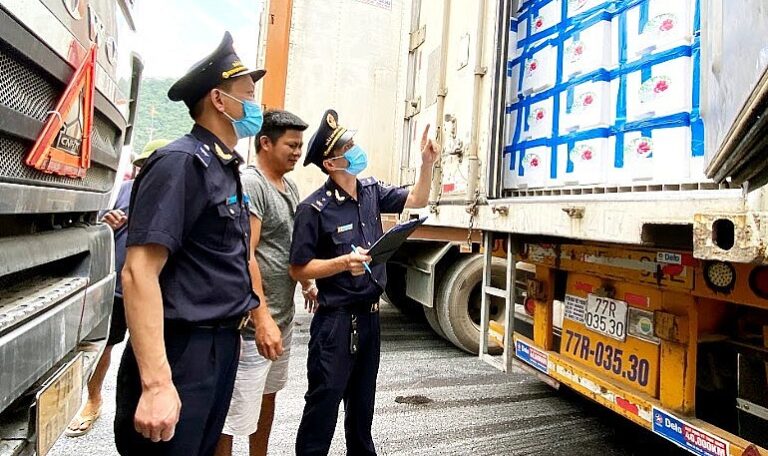Customs clearance process for exporting agricultural products

Customs clearance is an essential procedure that any business must comply with when exporting or importing goods across borders. For agricultural products, this process becomes even more complex due to specific requirements for quarantine, food safety, and international quality standards. It is a mandatory step to ensure that the business’s goods are legally cleared through customs and can be transported to foreign markets.
Customs clearance process for exporting agricultural products
To successfully export agricultural products, businesses need to follow all steps in the customs clearance process. Each step requires careful preparation and strict adherence to regulations to ensure that the goods meet standards and are cleared for international export.
1. Preparing export documentation
Preparing export documentation is the first and most critical step in the customs clearance process. Key documents that businesses must prepare include:
- Commercial invoice: this is the primary document that shows the value of the shipment and is used to declare the goods’ value to customs.
- Bill of lading: a transport document that confirms the goods have been shipped by sea, air, or other modes of transportation.
- Packing list: a detailed document describing the quantity and weight of goods in each container or package.
- Certificate of origin (C/O): a document that certifies the origin of the goods, required by many importing countries to determine tariffs and applicable regulations.
- Phytosanitary certificate: for agricultural products, this certificate is mandatory to ensure the goods are free from pests and meet food safety standards.
Depending on the importing country’s requirements, businesses may also need to prepare additional documents such as export licenses or quality inspection certificates.
2. Registering the customs clearance
Once all documents are prepared, businesses must register the customs declaration through the electronic clearance system of the general department of customs. This step involves declaring information about the shipment, including:
- HS Code of the product
- Quantity, weight, and value of the goods
- Exporter and importer details
- Mode of transportation and port of export
3. Accurate information is crucial
Any errors may result in the shipment being held for inspection or even fines. After submitting the declaration, the system will provide a declaration number and the inspection status of the shipment.
4. Quality inspection and quarantine of agricultural products
For agricultural products, quarantine is mandatory to ensure the goods are free from pests and meet the importing country’s food safety standards. Businesses need to coordinate with quarantine authorities to conduct inspections and obtain a phytosanitary certificate.
The quarantine process typically includes sampling the agricultural products to check for pests, banned substances, or failure to meet safety standards. Once the inspection is completed and the goods pass, the quarantine authority will issue a certificate. This certificate must be submitted along with other customs documents.
5. Paying export taxes (if applicable)
Some agricultural products may be subject to export taxes based on current regulations. Businesses must check the HS code of their goods to determine the applicable tax rate. Export taxes are typically paid before customs clearance. Accurate tax calculations help avoid fines or delays in the clearance process.
6. Inspection and clearance
After completing all preparation and declarations, customs authorities will inspect the goods. This process involves cross-checking the declared information with the actual state of the shipment. If everything is accurate and there are no discrepancies, customs will clear the goods, allowing the business to proceed with the export. If errors are found, the shipment may be held for further inspection, or the business may be required to amend the declaration. This step requires precision and experience in handling customs clearance procedures.
Important considerations for customs clearance of agricultural products
Exporting agricultural products requires businesses to strictly follow customs clearance procedures to ensure smooth clearance and compliance with international market requirements. Below are some key considerations to help businesses better prepare for exporting agricultural products:
- Accurate clearance
Customs clearance must be precise regarding the HS code, value, quantity, and type of goods. Errors in the declaration process can lead to delays or even fines. Businesses must thoroughly check all information on the declaration before submission. - Phytosanitary certificate
For agricultural products, the phytosanitary certificate is a mandatory requirement. Businesses should contact quarantine authorities early to arrange inspections and obtain the certificate before starting the customs clearance process. Goods must be properly stored during quarantine to prevent damage. - Compliance with import regulations in each market
Each country has different requirements for food safety and quarantine. Businesses need to research the importing country’s regulations carefully, including standards for pesticide residue, banned substances, or specific inspection procedures. - Complete export documentation
Export documentation includes the commercial invoice, bill of lading, packing list, certificate of origin, and quarantine certificate. All documents should be carefully prepared to ensure a smooth customs clearance process. - Timely handling of issues
Businesses need to be flexible in addressing issues such as missing documents or errors in declarations. Reviewing the documentation before submission and closely coordinating with logistics partners and customs authorities will help resolve problems quickly. - Timely payment of taxes and fees
For agricultural products subject to export taxes, businesses must check the HS code to determine the applicable tax rate and pay the taxes before customs clearance. Payment of related fees such as storage or quarantine must also be completed on time. - Use of professional Logistics services
Businesses can optimize the export process by using professional logistics services with extensive experience and expertise. These providers can help minimize errors and ensure that customs clearance is handled quickly and efficiently.
VELA’s customs clearance support services
Customs clearance can be complex and time-consuming, especially for businesses with limited export experience. Understanding these challenges, VELA offers comprehensive and professional customs clearance support services, helping businesses minimize time and effort in handling procedures.
- In-depth consultation
VELA provides free consultation services, helping businesses understand the entire customs clearance process and offering the best solutions.- Detailed process explanations: providing full information on steps such as document preparation, customs registration, export taxes, and quarantine.
- Optimal solutions for each shipment: depending on the type of agricultural product and export market, VELA advises on the best approaches to save time and costs.
- Document preparation support: guiding on the accurate preparation of essential documents such as commercial invoices, quarantine certificates, and certificates of origin to ensure smooth customs clearance.
- Fast and efficient processing
With an experienced team, VELA ensures quick processing, helping goods clear customs in the shortest possible time.- High expertise: our team is well-versed in customs clearance procedures and capable of effectively handling any issues that arise.
- Time optimization: businesses will receive full support in handling all paperwork, ensuring that goods clear customs quickly and meet delivery schedules.
- Rapid problem resolution: if any issues arise, VELA will promptly address them, avoiding delays for businesses.
- Comprehensive service package
VELA offers a complete service package, from consultation and document checking to customs clearance, saving businesses time, costs, and resources.- From consultation to clearance: our service covers every step from initial consultation, document checking, and completion, to final customs clearance.
- Cost and time savings: businesses will not need to worry about handling individual steps while maximizing savings in costs and manpower.
Customs clearance for exporting agricultural products is a complex process requiring businesses to thoroughly understand regulations and prepare all necessary documents. With support from VELA, businesses can easily overcome challenges and ensure their goods are exported smoothly.

